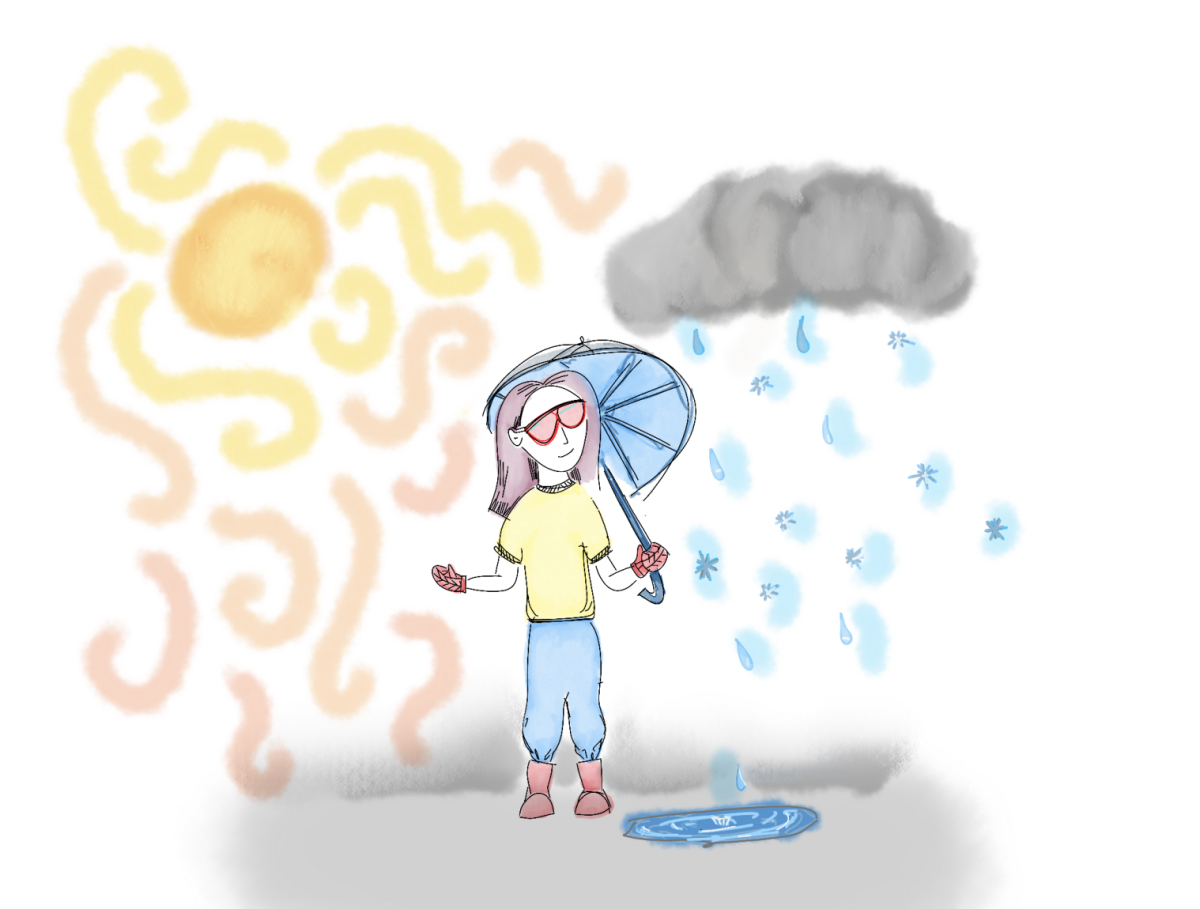Since March 26, 2021, the state of MA has, according to a law signed by former Governor Charlie Baker, been pursuing the goal of net-zero carbon emissions by 2050. Our beloved Groton School, a pillar among other secondary institutions in this state and throughout the country, has made major steps in support of a greener future. With four state-of-the-art solar facilities around campus, a cutting-edge battery backup system on the Gemmell Hughes Field, and use of our existing geothermal wells to their full potential, we have certainly made substantial progress that should not be dismissed quickly. However, if my Groton education has taught me anything, it is that there is always room for growth, and to be truly successful, one must always seek areas in which they can grow.
In a recent conversation with long-term Ecology, Environmental Science, and Advanced Ecology teacher Dr. David Black, he detailed that the installment of facilities was “a definite step in the right direction,” and the recent goal of making all of our new buildings carbon neutral (largely using solar energy) “an admirable one.” However, as we dove further into our conversation, we came to the agreement that tangible changes could be made to Groton’s existing approach to sustainability to make it even stronger. For one, setting a date for carbon neutrality, whether it is 20 or 30 years in the future, would be an inherently valuable step. Having something tangible to work towards could be both motivational, but could also signal to our school-wide community and beyond that we are an institution dedicated to mitigating our carbon footprint. As Dr. Black, said “I think doing it by 2050 is absolutely achievable. We could probably do it before then.” Energy being the biggest contributor to our footprint, it makes sense to consider more of a full-cost accounting approach when looking at the carbon footprint of our various school activities. For example, would reducing the number of athletic competitions by 25% have a great enough impact in reducing our footprint to be worth the loss? How much would the difference in cost be over both the short and long term to begin purchasing electric vehicles from now on? How can we acknowledge the difference between essential vs. non-essential travel? School-sponsored travel opportunities have become an integral part of many of our Groton experiences, and global education is extremely important. In fact, I believe I have never had a greater appreciation for the environment and sustainability than I did on the Indonesia GEO in March 2023. However, we must, as Dr. Black says, “recognize and mitigate the tremendous carbon footprint that these trips have” with our other actions as a community.
Energy consumption is not our only concern. Dr. Black further laments, “I remain profoundly concerned about the lack of recycling.” We are in something of a stalemate in terms of our waste management as a school community. Not only are almost all of our recycling bins contaminated, we have been unsuccessful in putting up infographics to make the system more comprehensive due to disagreements on aesthetics. The sustainability board heads this year have worked hard in collaboration with B&G to develop a plan to make recycling in the dumpsters behind Hundred House, in joint trash and recycling bins in the school house, and in the basement of Brooks house more comprehensive. These conversations have certainly been advantageous, even just in terms of educating ourselves as students on the incredible service that B&G workers provide to us as a school community. The recent food waste competition with St. Marks was also a definite success– disregarding some of the cheating with throwing food away. However, we must prioritize long term success. As Dr. Black said, “Are the competitions good? Yes, absolutely… so long as we are willing to take the steps necessary to achieve the results over the long term.” Many other institutions celebrate their composting systems and hold numerous school wide discussions on sustainability. Our goal as a club is to simply encourage the student body and our faculty to have more conversations as our passive approach has been historically ineffective. We will continue to bring in speakers and resources to educate the community like Dr. Marhaver, an impressive individual who researches the effects of climate change on ocean ecosystems and the coral reefs, whose presentation received an overwhelmingly positive student response.
As such a connected community, we have such a strong foundation to fall back on when uniting around issues. Sustainability deserves, and frankly needs our attention in our ever-melting world. Dr. Black said, and after two years in his classroom, I know this to be true: “Environmental justice is one of the most pressing equity issues facing the entire planet. When we choose not to address sustainability issues, Groton students are not going to be hurt, it’s the poor of the world.”
We have a responsibility as a leading community, one that has provided a sense of belonging for students from across the globe, and one that has, as Headmaster Maquebela said in his recent Chapel talk to begin the spring term, really provided financial aid to all students because of the substantial cost reduction in tuition. When we lead our peer schools in affordable education and inclusivity, when we are school with the mission of cui servire est regnare (to serve is to rule), how can we let other peer institutions overtake us in serving the land, the space upon which we are able to come together and learn?




